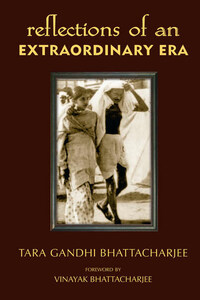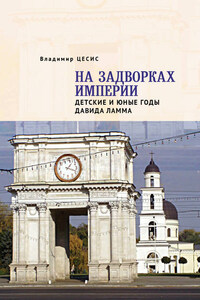This is a book about the experiences of a young girl during an extraordinary and tumultuous period in recent Indian and world history. The seventy-eight-year-old lady recounting her childhood memories is my mother, Tara Bhattacharjee, born Tara Gandhi and known to me, my sister Sukanya and countless others simply as Ma.
Ma was born in Delhi on 24 April 1934, the eldest child of Devadas and Lakshmi who subsequently also had three sons: Rajmohan, Ramchandra and Gopalkrishna. As a granddaughter of Mohandas Karamchand (Mahatma) Gandhi and of Chakravarti Rajagopalachari (popularly known as Rajaji), her early experiences from the late 1930s and ’40s are a virtual moving image of that era, a real period piece. In 1911, the capital city of colonial India moved from Calcutta to New Delhi, and landmark buildings like the colonnaded circular Connaught Place and the art deco Viceroy’s residence were completed in the 1930s. This book dwells on what Delhi was like at the time, and, since it is written retrospectively, it highlights how Ma has been a witness to the transformation of Delhi into the metropolis it is today.
The recollections also beautifully capture the mood of the period and reflect on thoughts, sensations and philosophies that can be drawn from moments of deep change and intense human interaction. The pages speak for themselves and I am far from being an impartial observer. My main purpose in writing this introduction is to set a context to help the reader approach the stories related by Ma with sympathy and warmth. Within this book lie some of the events and experiences that shaped Ma’s personality. This, coupled with my intense interest in India, have compelled me to commission this translation of the Hindi original published several years ago. Through this faithful English translation, I hope to share my mother’s insights with a broader audience and with her many friends across the world. So, while there are dollops of selfish interest in seeing this book through, I do believe that in Ma’s storytelling lie some beautiful reflections on humanity, spirituality, the character of legendary leaders, and the nature of the Indian society, which is the result of incredible cultural mixing over the last 5,000 years.
India is not often held up as a role model nation and heaven only knows how much needs to be fixed in the country. It would take a treatise to list down and analyze the multitude of problems in this country, but at the core the issue today is a carelessness that has crept into its society – carelessness in the execution of public services. And this carelessness is tolerance taken too far. The point I am making is that India is no longer a poverty-stricken country and has had a very long spell of economic growth that has created a wealthy and worldly middle class. It is certainly incumbent on these middle and wealthy classes, if not on everyone, to not accept poor levels of public service. Nor should they act as if it is outside their gift to make a difference for the society at large.
Freedom of press and an independent judiciary have helped in generating some change though. Over the past year or so, the nation has seemed to shed its complacence on some issues such as the decades of corruption that has made billionaires of many public officials. More generally, consider that as we gaze at the Arab Spring, the Euro crisis, the modern wars of imperialism and wonder what of Pax Americana, we should spare a thought for a country that is today one country, one currency zone, has 22 official languages with as many scripts, is arguably the most culturally and racially mixed society in the world, has sprung and/or provides shelter to countless philosophies of life (Hindu, Buddhist, Sikh, Jain, Zoroastrian, to name a few) and houses the world’s three Semitic religions. It is also the world’s biggest democracy.
Most of the world’s nations are tribal in nature in the sense that many of their citizens are bound together by some or all of a series of common traits: racial background, language, politics, religion, to name a few obvious ones. Such tribalism is a source of strength to those that it binds, but we should not forget that it is equally good at excluding and ostracizing those from other cultures and with other bonds. It is important to be conscious of this simple reality as we now live in an increasingly globalized and interconnected world. In the book by the BBC production, The Story of India, Michael Wood retold a quote from an Indian journalist that encapsulates one of India’s real strengths – its diversity:
‘…when Sonia Gandhi, widow of Rajiv Gandhi, Nehru’s grandson…stood down as PM-in-waiting after the 2004 election, you saw the unlikely situation of an Italian Catholic woman as prime minister-elect giving way to a Sikh who swore the (prime ministerial) oath to a Muslim president in a majority Hindu nation. Now, I ask you, where else on Earth could that happen?’














